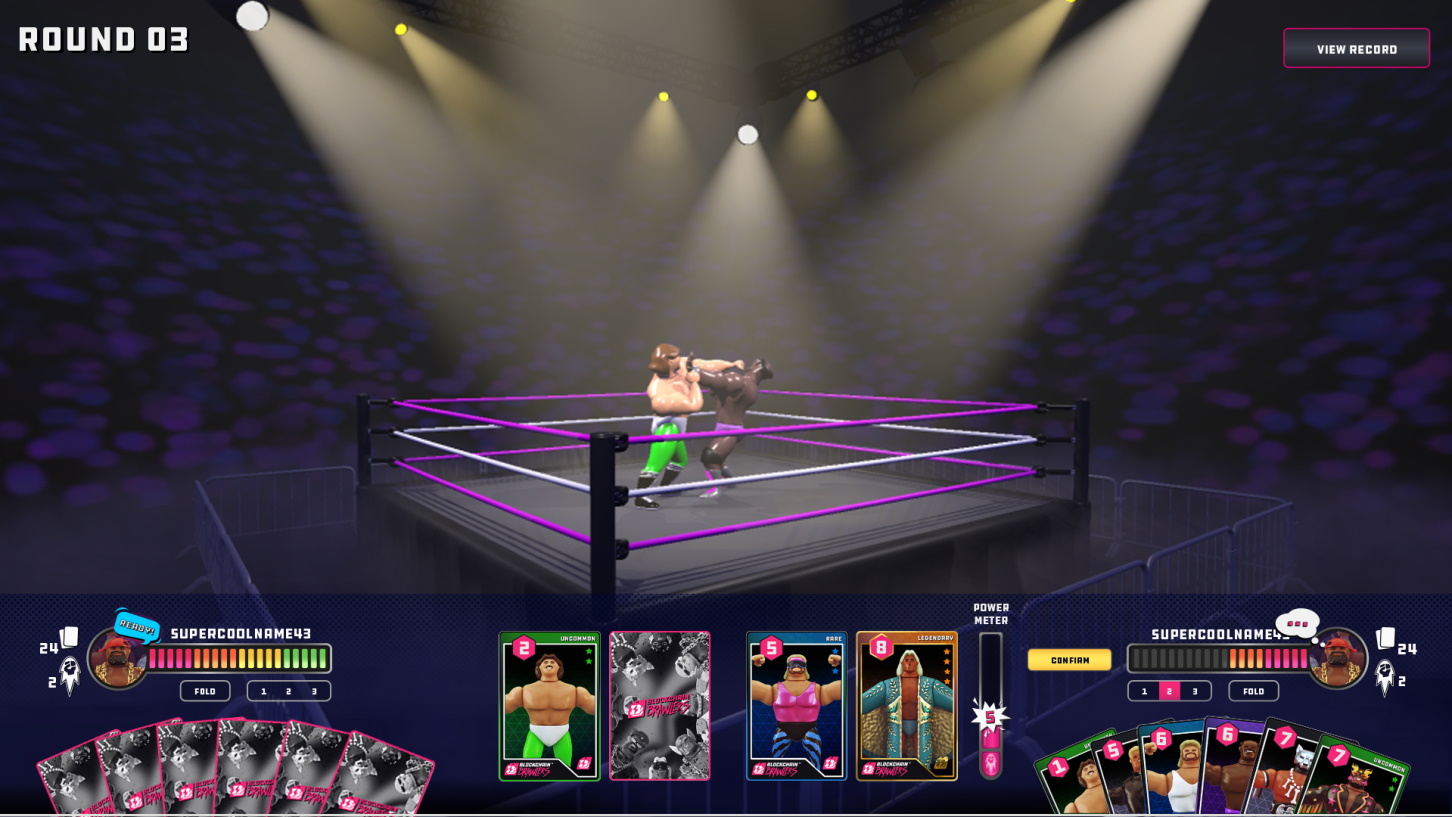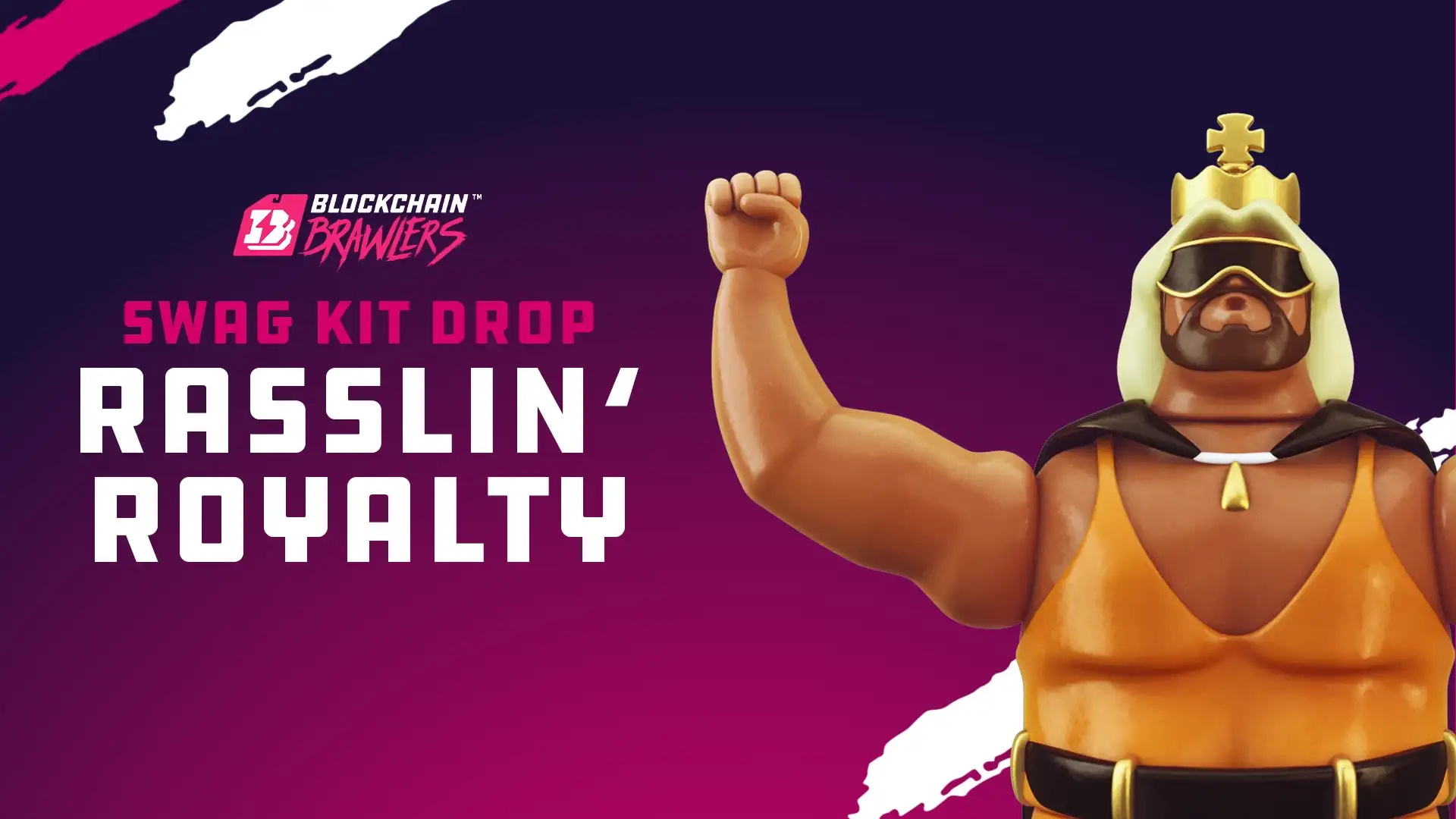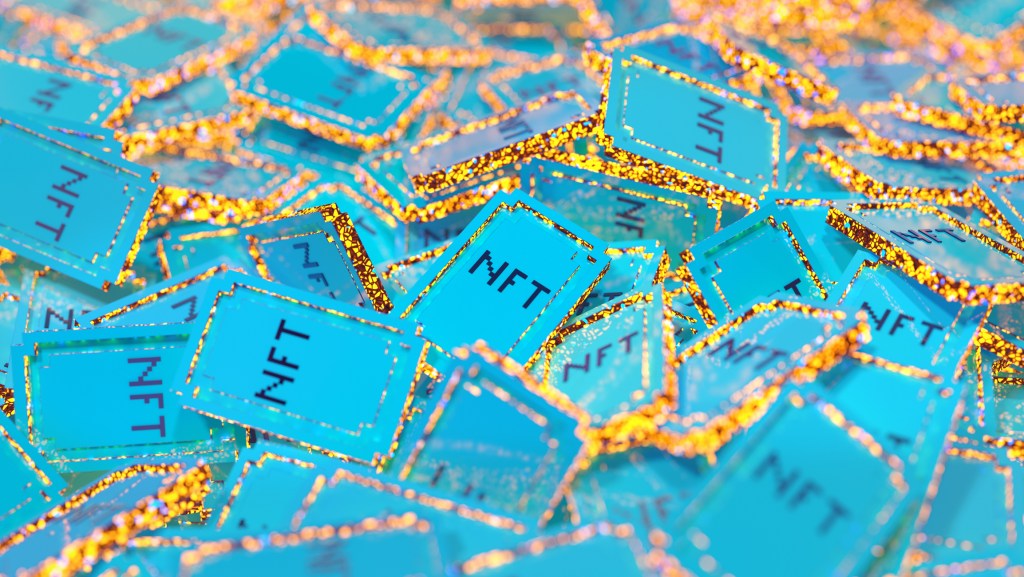Richard Garfield is a name familiar to many in the tabletop gaming world, most notably as one of the creators of Magic: The Gathering, the most prominent trading card game out there. But Garfield is dipping his toe into the world of digital and in particular blockchain-adjacent games, and TechCrunch took the opportunity to quiz the veteran gamemaker on the pros and cons of this and other new approaches to gaming.
It should be noted at the outset that unlike the dubious profit-focused gameplay of your Axie Infinity and suchlike, Garfield’s new game, technically a “mode” of Blockchain Brawlers, is not focused on speculation but is more of an experiment in distribution of a complete card-based game outside traditional publishing methods.
It should probably also be noted that the game platform is full of the usual NFT and monetization chatter, but the core game itself, a 1v1 bluffing style match, is capable of being played with ordinary playing cards or numbered pieces of paper, for that matter. I played a few rounds with him that way and it’s actually quite fun and straightforward (I would like to state for the record that I was in a fair way to win but we had to stop early). A follow-up game unrelated to Garfield’s design and that uses more rarity/stat/token-focused mechanics is underway for a separate release in 2023.
TC: Why is introducing blockchains, tokens and things into game design worth it? When you have consumer fears about things like FTX…I know that they’re very different, but why is the asset worth the risk?
RG: There’s some benefits of not being tied to paper, and there’s some benefits of not being digital. In the digital space, the opportunity to sell people games which are digital but ownable has some appeal. In particular, when you sort of contrast what’s evolved in other digital spaces, where there’s so much free-to-play, which has a lot of negative baggage along with whatever positive it brings to the table.
Of course, FTX can crash and that has nothing to do with a tracking mechanism for ownership of a card or whatever. But in the minds of consumers, they can be conflated. Is that just a consumer education thing? Or is that a branding thing?
It’s all the above and more. It’s also a designer and a publisher choice. I think there’s some natural caution in this space, because so much of the design has been in an area which I don’t think is healthy for games, which is trying to conflate it with speculation — which I’ve got a lot of experience with, because this was the environment which Magic: The Gathering began in. And it was very poisonous for the gameplay to have people basically buying just to see their money go up. Because it got in the way of the game as a game.

A lot of the designers and publishers these days are embracing that and saying, “Join this game now, make a lot of money.” That’s not healthy for game design, but is not intrinsically a part of players’ ownership of digital assets anymore. The negative qualities of free-to-play, for instance, aren’t intrinsically a part of free-to-play. It’s just there’s some things that are difficult to avoid, because of the way the revenue model works. And players these days, with digital ownership, it’s natural for them to conflate that with the speculation bubble, in the same way that a player who engages free-to-play, it’s always going to be a danger for them to think that it’s pay to win, or it’s some sort of hustle. But there is some confusion, and some reasons for that confusion.
At the beginning of Magic, I’m curious what kind of blowback you got at the time regarding both the business model and the unanticipated hoarding of valuable cards, taking them out of play. Was there skepticism that this was a valid gaming model, and a valid business model? And do you think that kind of reaction is also happening now?
Yes, there was some skepticism. And it actually took a lot of effort to get past that. And it was quite divisive inside Wizards of the Coast itself. The problem was that as the prices went up with speculation, everybody drew comparison to the comic book market or Cabbage Patch Kids or whatever people collected, and got really popular, and then always busted.
I wasn’t very educated in that area when I began, because I didn’t pay much attention to collectibles. But very quickly, I adopted the idea that this speculation was just awful for gameplay, that there was no upside for the players.
We had to really work to bust that cycle — intentionally overprinted, for example, because we had to make it so that it wasn’t appealing to collect. When we finally managed to do that, there were some people at the company that thought we had sunk the product. And some players did, because they saw the value of their collection go down. But the game just blossomed at that point. And in the end, that’s what it was about: it was a game. It became very clear that the people who were playing the game were doing it because they loved the gameplay, not because of any investment.
Do you think that something similar will have to happen now with digital ownership? How do you prove that model out? Because I know that people will be skeptical, like, “How do I know I’m not gonna get the rug pulled out from under me once I invest a couple hundred bucks in this game?”
You really have to trust your publisher. When you’re doing a tradable object game, the publisher can always mess it up.

On the other hand, people don’t buy Settlers of Catan and worry about whether the publisher is going to screw that by making their game weaker; they’ve got the game, and they can play it. And that is, to me, the potential appeal of digital ownership, that people don’t necessarily have to rely on the publisher. They only have to rely on the publisher to be fair when they’re in charge of some ongoing environment.
How do we move forward on that ownership piece to a point where people can say, “Hey, I paid my 50 bucks. I have that digital copy.” People will trust Steam for a PC game. But if it gets more complicated with NFT-based instances of cards and things like that…
Well, it’s a matter of, if you’re having your game engine being provided by somebody, you’ve got to trust them. That’s the end of the story. Here you have other avenues. Whether those will evolve or not depends on the community, and you know, whether there’s people who are interested enough to pursue that.
I should point out that, with the game that I’ve worked on here, I was very firmly in the board game category, in the sense that the game that’s been provided is something where there’s no distinction between what players own — it’s a completely fair game. Really, it was the only reason I became interested in the project, because the publisher said they backed me on that.
[Note: Players can own different “moves” and cosmetics but the gameplay elements, essentially the numbers 1-8 and some other minor things, are functionally the same for all even though they are treated as NFTs or some other owned digital item. These items may serve different purposes in other modes or games.]
That part of the game is always there for people, like they can play it themselves, or somebody can code a new framework for it. And it’s simple enough that that’s not hard. This really is very close to a traditional game, in the sense that you buy a box and you can play.
I feel like my readers are going to ask, Why am I not just buying this game on Steam? Or what is really the improvement over a free-to-play situation where, if there’s 50 cards, I pay $50. And now I’ve got all the cards. What really are the advantages that you see in this approach versus the traditional publishing or a free-to-play model?
Frankly, I think that the advantages have been overstated by a lot of people. And, in fact, what’s kept me out of it for so long is that I really didn’t see the advantage over a server-based system for a long time. The key thing which got me involved is just how hard it is to get certain games done in the digital space, because of this free-to-play expectation.
Like there’s a lot of games that, in theory, you could just put it on Steam, or put it up on iOS and have people download and play it. But you actually can’t do that, because you can’t charge for it. And if you put it up for free, you got to pay for it. And if you start attaching some free-to-play monetization to it, you’ve got advertisements or you got to fill a bar, or do cosmetics, or something which may not be of interest to designers or the players.
So the game that’s being done here, for example, it could be done on Steam, or it could be done on iOS. But the games I’ve done in the past, which are in this description have been really hard to get going because of this, because you’ve got to make it free. And then you’ve got to put in ads or something. So I’m being drawn to it in the same way that I really like working with paper publishers, because I can say: “Here’s a card game,” and they can print it, put it in a box, sell it to people. And nobody complains about that as a revenue model.
There’s obviously been this huge renaissance of tabletop gaming. Everybody loves it, everybody’s playing with paper, everybody’s playing with cardboard and wood, and it’s great. But then you also have crossover successes, like Gloomhaven, which has a great digital version and paper version. I’m curious how you think it’ll play out over the next few years as analog and digital gaming both become more popular and continue to cross-pollinate one another.
That’s a really exciting area. I could talk for a long time on that. I’ve been really interested in that space. I first began to think about it back in, I guess, the late ’90s, where I just was struck by how I liked computer games, I like board games. And then I would play whatever, TF [Team Fortress]. I would play some digital shooter or something like that, and then I would play Scrabble.
And I’d think, how are these even in the same space? They’re just such different experiences, and why aren’t there more games sort of like the board games I love, but taking advantage of all the things which have to be offered digitally.
So to see more and more examples of that, including, like, Slay the Spire, these games, which have this sensibility really rooted in traditional gameplay, but taking full advantage of what the computer has to offer, and not making you just play Twitch games or something like that…It’s a very exciting area. I’m really excited to see where it goes, and happy to contribute anything to it where I can.































Comment